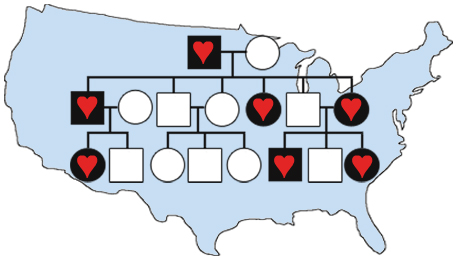
12/04/2021
Hot Topics of the Day are picked by experts to capture the latest information and publications on public health genomics and precision health for various diseases and health topics. Sources include published scientific literature, reviews, blogs and popular press articles.
Sign up MyPHGKB to receive the daily hot topic email alert.
Archived Hot Topics of the Day By Date
Omicron and Delta Variant of SARS-CoV-2: A Comparative Computational Study of Spike protein
S Kumar et al, BIORXIV December 3, 2021
Severe breakthrough COVID-19 cases in the SARS-CoV-2 delta (B.1.617.2) variant era
SY Wang et al, Lancet Microbe, December 3, 2021
With omicron looming over the holidays, here's how to stay safe
M Godoy, NPR, December 4, 2021
Inside a Sequencing Lab on the Front Lines of America’s Search for Omicron
M Smith, NY Times, December 4, 2021
Omicron possibly more infectious because it shares genetic code with common cold coronavirus, study says
A Cheng, Washington Post, December 4, 2021
Probable Transmission of SARS-CoV-2 Omicron Variant in Quarantine Hotel, Hong Kong, China, November 2021
H Gu et al, EID journal, December 3, 2021
Studies Focus on Testing Family Members of Cancer Gene Carriers
NCI, November 2021

Disclaimer: Articles listed in Hot Topics of the Day are selected by Public Health Genomics Branch to provide current awareness of the scientific literature and news. Inclusion in the update does not necessarily represent the views of the Centers for Disease Control and Prevention nor does it imply endorsement of the article's methods or findings. CDC and DHHS assume no responsibility for the factual accuracy of the items presented. The selection, omission, or content of items does not imply any endorsement or other position taken by CDC or DHHS. Opinion, findings and conclusions expressed by the original authors of items included in the Clips, or persons quoted therein, are strictly their own and are in no way meant to represent the opinion or views of CDC or DHHS. References to publications, news sources, and non-CDC Websites are provided solely for informational purposes and do not imply endorsement by CDC or DHHS.
- Page last reviewed:Feb 1, 2024
- Page last updated:Apr 21, 2024
- Content source:



